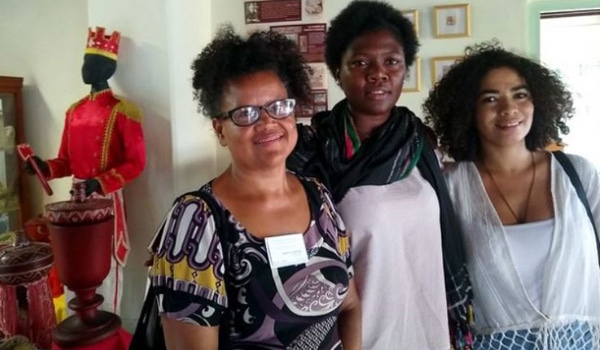
Within the greenscarves’ movement fighting for abortion rights and against femicide,Afro-descendant women in Latin America are raising their voices more and moreevery day, to underline the disadvantages and invisibility they suffer insociety.
The growingcapacity to get women’s movements to fight for abortion rights and againstgender-based violence, reaffirms the mark that feminism has had on the region.However, diversity within this struggle, such as the fight of black andmixed-race women in a region with 133 million Afro-descendants, still lagsbehind.
“We are very interested in placing abortion as a publichealth issue and continue to stretch the opening in legislation when it comesto a mother’s mental health,” said Lorena Alvarez, from the Association ofAfro-Colombian Women.
“In Brazil, we arefighting to give Afro-feminists visibility, to represent us in government andin universities,” Brazilian demographer Jackeline A Ferreira reported. She isalso a member of an Afro-feminist network tied to the Afro-descendance and Counter-HegemonicProposals Working Group.
Created in 2017,and the only network of its kind within the Latin American Council of SocialSciences, this permanent working group, with researchers, activists and publicpolicy-makers from over 20 countries, are prioritizing the incorporation,training and visibility of Afro-women within the region, from 33 countries.
The network focuseson working beyond what was stipulated at the International Decade for People ofAfrican Descent, declared by the United Nations from 2015 up until 2024. Theyheld a workshop in Havana, from 21-25 October 2019 where issues of violence,gender-based murders and discrimination are rife.
Brazil has thelargest Afro-descendant population in the region, accounting for over half ofits 210 million inhabitants. The 2015 Violence Map, by the Latin AmericanFaculty of Social Studies, revealed that gender-related murders between2003-2013 against black Brazilian women went up 54%, while they dropped by 10%for white Brazilian women. According to the Economic Commission for LatinAmerica and the Caribbean (CEPAL), 14 of the 25 most dangerous countries in theworld for women are found in Latin America and the Caribbean, reporting 3,527femicides in 2018, recorded in the 24 countries that offer some kind of data.
In its report “Afro-descendent women in Latin America andthe Caribbean: Debts of equality” (2018), the United NationsEconomic Commission for Latin America and the Caribbean (CEPAL) pointedout “the persistent inequalities experienced by Afro-descendent women indifferent areas,” the pending problem of data visibility, and insufficientpublic policies promoted by States.
SOURCE: HavanaTimes, by Ivet González, 14 November 2019 ; PHOTO: Ivet González Lemes /IPS



